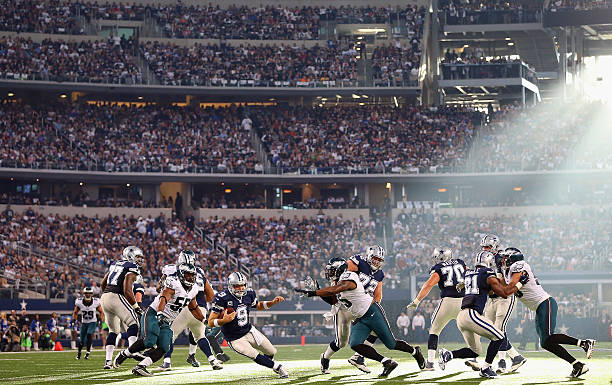Understanding NFL Games and Their Rules: What Fans Need to Know

NFL games are known for their fast pace and thrilling action, but behind every touchdown and big play is a set of complex rules that govern the game. Whether you're a long-time fan or new to watching American football, understanding the basic rules of NFL games can make the experience even more exciting.
One of the key elements of NFL games is the structure of the game itself. Each game is played in four quarters, each lasting 15 minutes. The goal is simple: score more points than the opposing team. Points can be scored in a variety of ways, including touchdowns (6 points), field goals (3 points), and extra points or two-point conversions after touchdowns.
The NFL also operates under a system of downs. A team has four attempts, or "downs," to advance the ball at least 10 yards. If they succeed, they are awarded a new set of downs. If they fail to move 10 yards, the ball is turned over to the other team. This rule adds a layer of strategy to NFL games, as teams must carefully manage their plays to maintain possession and keep the ball moving downfield.
In addition to scoring plays, NFL games involve various penalties for illegal actions. Common penalties include holding (where a player grabs an opponent unfairly), offsides (when a player moves before the ball is snapped), and pass interference (when a player interferes with a receiver trying to catch the ball). These penalties can have a significant impact on the outcome of NFL games, as they can result in lost yards or even automatic first downs for the opposing team.
Another unique aspect of NFL games is the clock. The game is played with a running clock, but it stops for certain events, such as timeouts, incomplete passes, and after a team scores. Teams also have a limited amount of time to snap the ball after each play, called the "play clock," which adds an additional layer of urgency to the game.
The NFL has a playoff system to determine the league champion at the end of the season. The top teams from each conference (AFC and NFC) face off in a series of elimination games, culminating in the Super Bowl, where the champions of each conference compete for the ultimate prize in NFL games.
Whether you're watching a regular-season game or tuning into the Super Bowl, understanding the rules that govern NFL games makes it easier to appreciate the strategy and skill involved. So next time you're watching your favorite NFL team in action, you'll be able to better follow the plays and enjoy the game even more.








